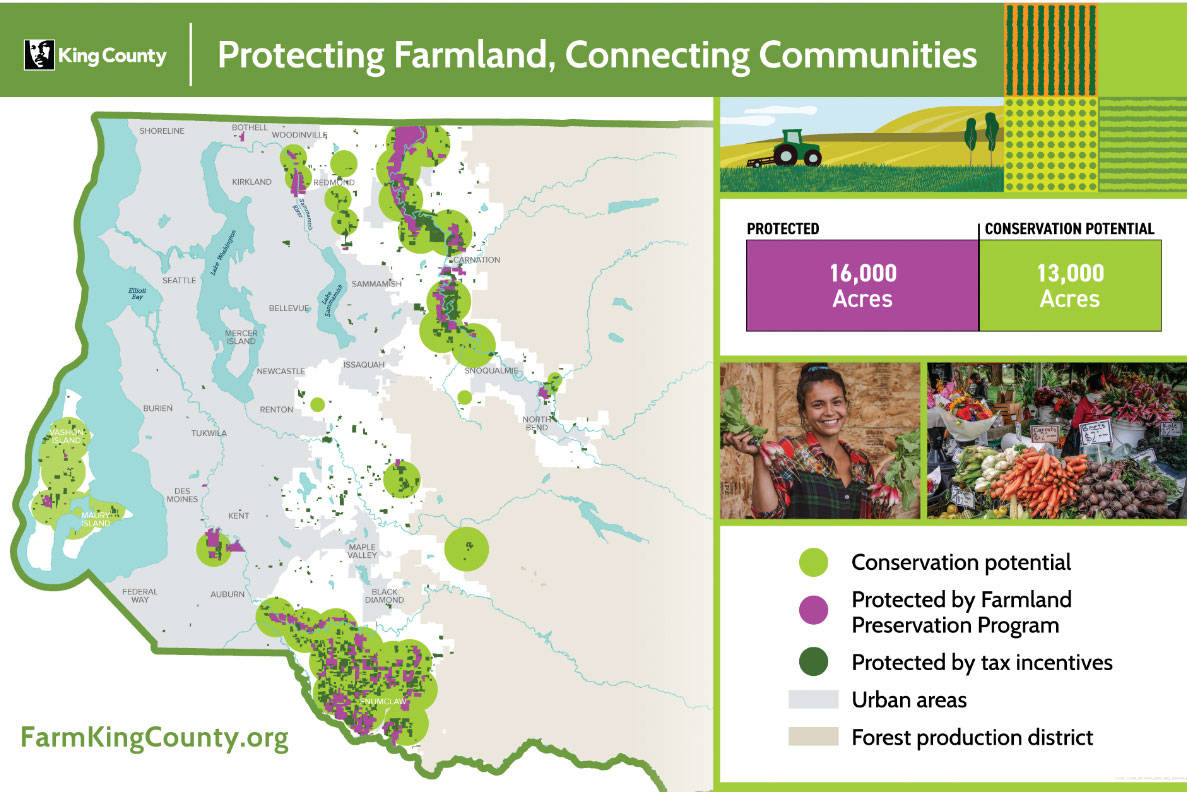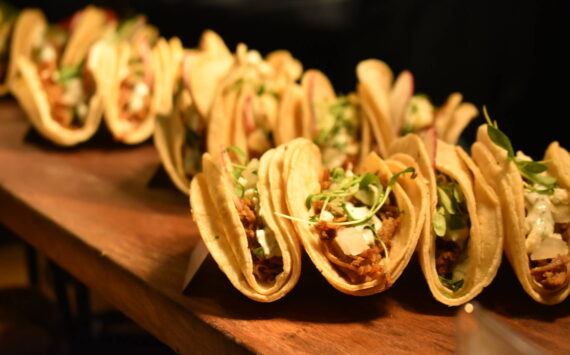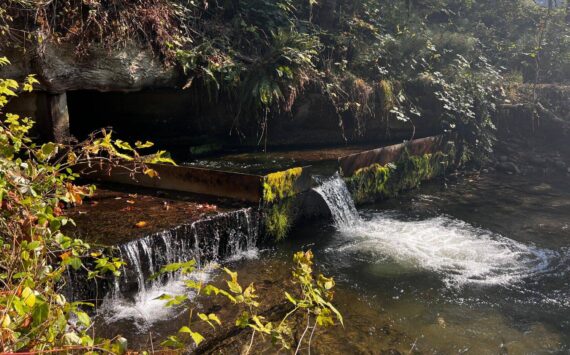King County Executive Dow Constantine announced on August 12 progress toward his goal of protecting 13,500 acres of farmland needed to strengthen the local food economy, adding it to the 16,000 acres that the county has preserved over the past 40 years.
In 2016, Constantine launched the Land Conservation Initiative to protect 65,000 acres of the highest conservation-value open space in King County, which includes 13,500 acres of farmland. King County and partners have already protected 1,200 acres of farmland identified by the Land Conservation Initiative.
Many of the fresh goods that residents purchase at farmers markets, groceries, and restaurants today are grown on farmland that King County has protected with its successful Farmland Preservation Program.
Constantine included farmland in the Land Conservation Initiative to help ensure that future generations have equitable access to nutritious, locally grown food as the population grows and the cost of land rises.
“Our success in protecting farmland has made it possible for more people to enjoy the delicious foods and fresh flowers that King County is famous for, strengthening an equitable, sustainable local food economy,” said Constantine.
King County’s Farmland Preservation Program, which is celebrating its 40th anniversary, has protected more than 16,000 acres of farmland that otherwise would have been lost to development. King County’s population has grown by 1 million people since the program was enacted in the early 1980s, increasing development pressure on all open spaces, including farmland.
In addition to protecting farmland, King County technical advisors collaborate with partners across the food system to connect farmers with resources they need to succeed, such as financial resources, advice on purchasing or renting the right farmland, assistance on crops, livestock, and soil fertility, recommendations for taking goods to market, and guidance on complying with food safety standards.
According to the county, farmers consistently tell King County staff that the biggest barrier to success is access to adequate and affordable farmland.
The county says they are also focusing on making access to farmland more equitable for Black, Indigenous, and other people of color and then connecting them with the resources they need to participate in the local food economy, producing culturally relevant food.
“The Farmland Preservation Program not only preserves land to promote growing local food and fiber, but preserves legacies of multi generational farms and the socio-economic impact they have on the local community,” said Leann Krainick, farmer with Krainick Dairy. “This program helped keep our multi generational farm operating.”








